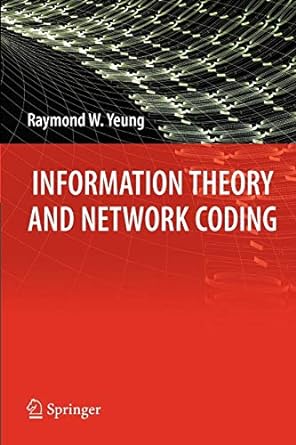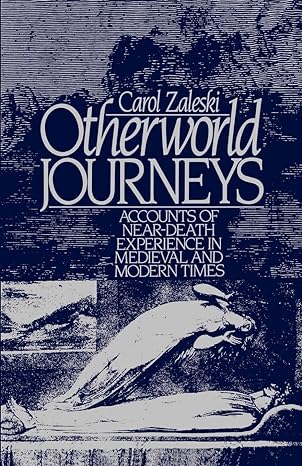Go back


Information Theory And Network Coding(1st Edition)
Authors:
Raymond W. Yeung

Cover Type:Hardcover
Condition:Used
In Stock
Include with your book
Free shipping: April 03, 2024Popular items with books
Access to 3 Million+ solutions
Free ✝
Ask 10 Questions from expert
200,000+ Expert answers
✝ 7 days-trial
Total Price:
$0
List Price: $69.99
Savings: $69.99(100%)
Book details
ISBN: 1441946306, 978-1441946300
Book publisher: Springer
Get your hands on the best-selling book Information Theory And Network Coding 1st Edition for free. Feed your curiosity and let your imagination soar with the best stories coming out to you without hefty price tags. Browse SolutionInn to discover a treasure trove of fiction and non-fiction books where every page leads the reader to an undiscovered world. Start your literary adventure right away and also enjoy free shipping of these complimentary books to your door.
Information Theory And Network Coding 1st Edition Summary: This book is an evolution from my book A First Course in Information Theory published in 2002 when network coding was still at its infancy. The last few years have witnessed the rapid development of network coding into a research ?eld of its own in information science. With its root in infor- tion theory, network coding has not only brought about a paradigm shift in network communications at large, but also had signi?cant in?uence on such speci?c research ?elds as coding theory, networking, switching, wireless c- munications,distributeddatastorage,cryptography,andoptimizationtheory. While new applications of network coding keep emerging, the fundamental - sults that lay the foundation of the subject are more or less mature. One of the main goals of this book therefore is to present these results in a unifying and coherent manner. While the previous book focused only on information theory for discrete random variables, the current book contains two new chapters on information theory for continuous random variables, namely the chapter on di?erential entropy and the chapter on continuous-valued channels. With these topics included, the book becomes more comprehensive and is more suitable to be used as a textbook for a course in an electrical engineering department.
Customers also bought these books
Frequently Bought Together
Top Reviews for Books
Viviana Romo
( 5 )
"Delivery was considerably fast, and the book I received was in a good condition."










